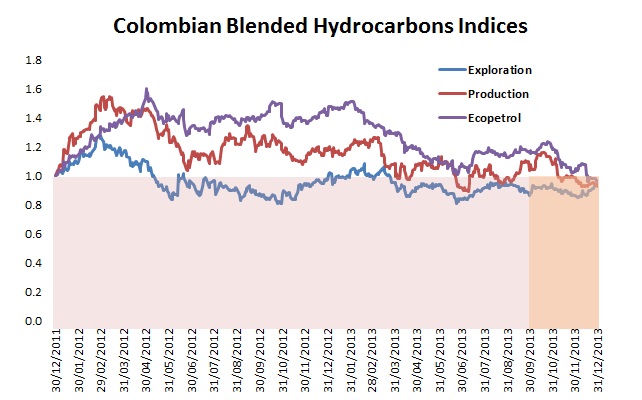The governor of the Norte de Santander Department Édgar Díaz Contreras has proposed the construction of a micro-refinery with a capacity of 40,000bd to produce fuels for the region which is looking for alternatives after Venezuelan fuel sales were suspended last May.
The USO launched a series of accusations against Pacific Rubiales Energy (TSX:PRE), one of its favorite targets in the oil industry, taking aim at its STAR secondary recovery technology which the union says has failed.
The Ministry of Mines and Energy (MinMinas) says it is looking to expand the access and reach of propane in energy generation and use it in areas that farther off the formal energy grid.
Security and Public OrderIncidents near areas of interest to the oil and gas industry back up to the recent peak of 47 above recent and long-term averages.

That is what a partner in the petroleum practice of a major investment fund told the recent Oil Council Latin American assembly in Bogotá. (So-called Chatham House Rules prevent us from identifying either the individual or his company.)
To view or download the pdf form of our late 2013 Quick Pulse Survey.
We start this month with a long and important essay by Luis Ernesto Mejía Castro, HCC contributor and ex-MinMinas, on the current anxieties of the industry in Colombia.
This week the United Nations held its second regional summit of Latin American leaders in Havana, Cuba and the peace talks in Colombia were a recurrent theme, while back in Colombia some question whether a fissure in the Farc’s organization is already taking place.
Following accusations that its contracting process of transportation firms is excluding local, small and medium sized companies Ecopetrol (NYSE:EC) has suspended the contract process for two months while it reviews the terms and conditions.
This Friday, January 31 Pacific Rubiales (TSX:PRE) and Ecopetrol (NYSE:EC) will meet to review the future of the production contract on the Rubiales field, which is set to expire in May 2016 and has been a lightning rod for political grandstanding in the last few months.